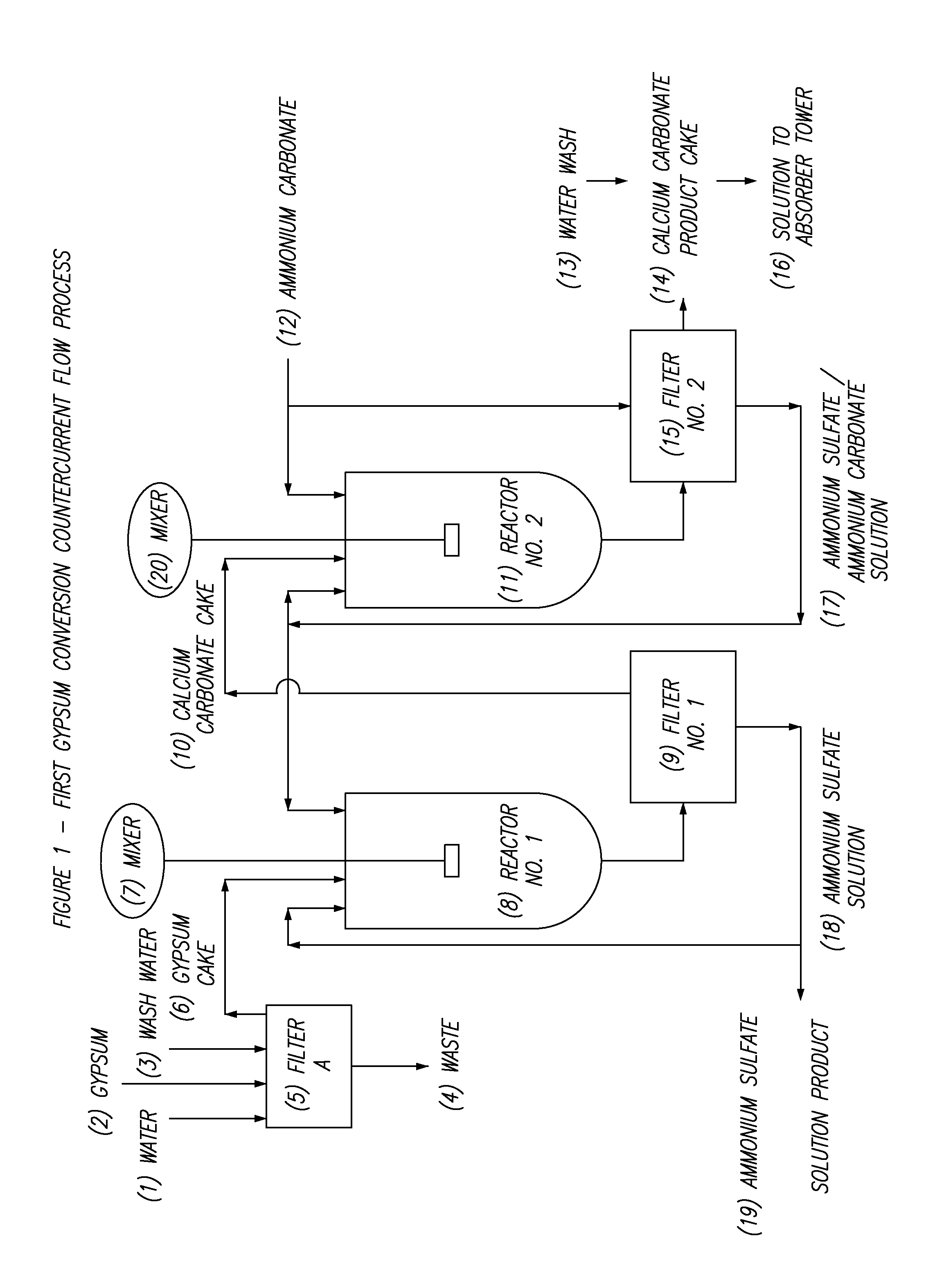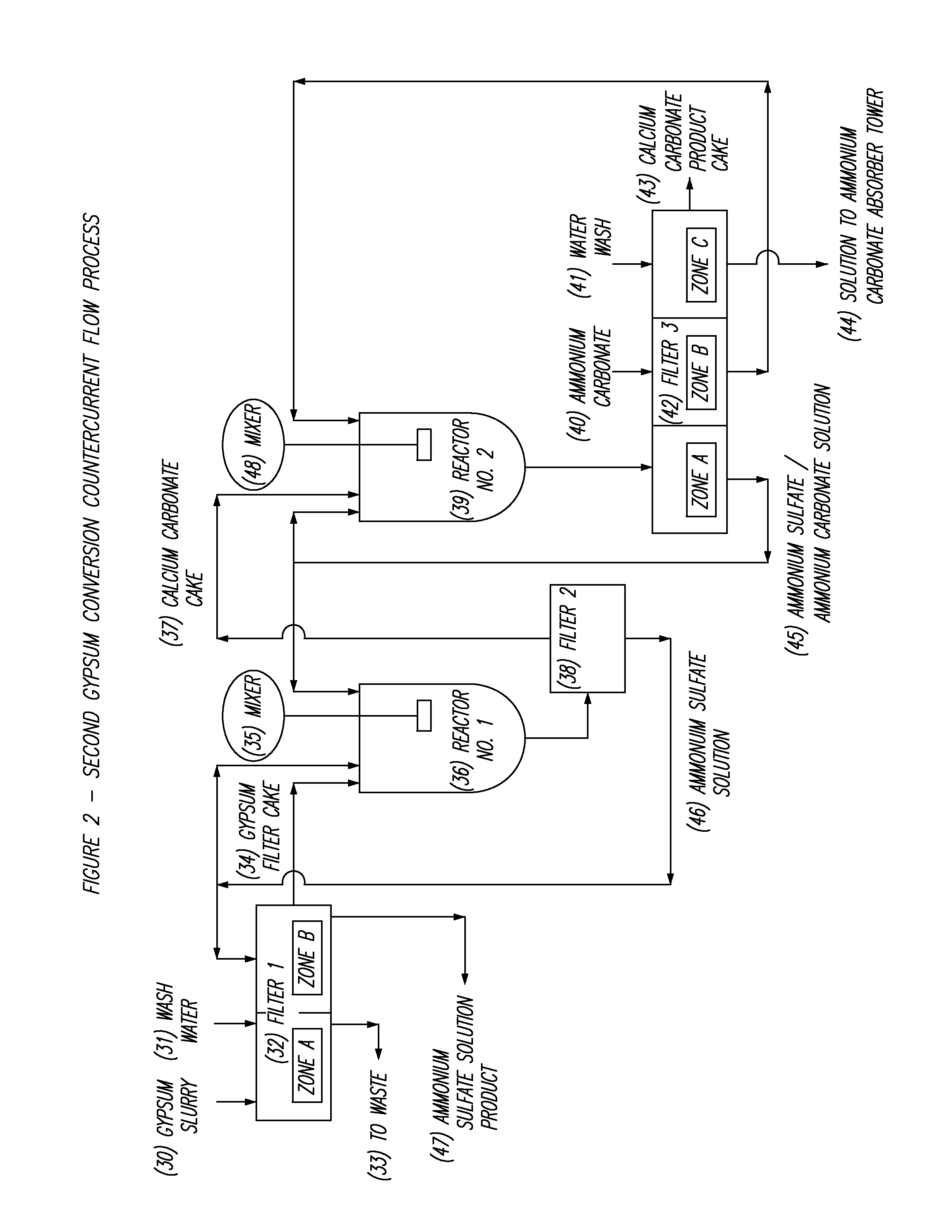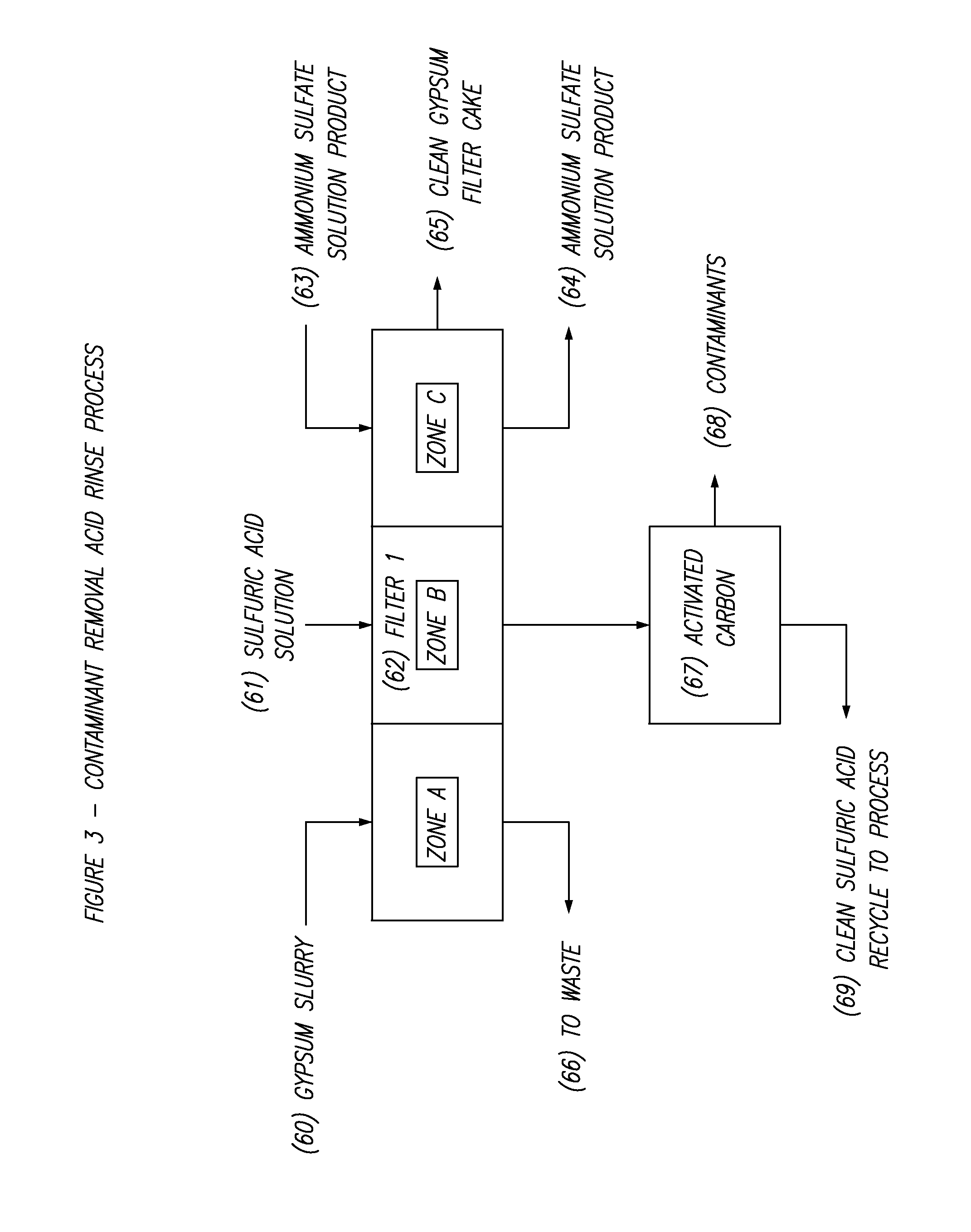Process for converting fgd gypsum to ammonium sulfate and calcium carbonate
a technology of gypsum and ammonium sulfate, which is applied in the direction of magnesium compounds, chemical/physical/physical-chemical processes, chemistry apparatuses and processes, etc., can solve the problems of poor reactivity of physical structures, and achieve high yield, high purity, and greater reactive surface area
- Summary
- Abstract
- Description
- Claims
- Application Information
AI Technical Summary
Benefits of technology
Problems solved by technology
Method used
Image
Examples
example 1
[0136]The continuous single stage process of the present invention, employing a single reactor, was demonstrated in pilot plant testing during February, 2012 and during September, 2011.
[0137]During the latter part of February, 2012, twelve barrels of FGD gypsum material were received from the William Crawford Gorgas Electric Generating Plant, Parrish, Ala. Eleven of the barrels contained gypsum collected from this plant (herein after referenced as “FGD gypsum A”) as water slurry and one barrel contained relatively dry gypsum collected from the settling pond. The contents of the slurry barrels had separated out with gypsum cake on the bottom and liquid on top. Samples were taken from each barrel and each sample examined under microscope to look for any differences in the gypsum crystal structure. Observations are recorded in the following Table 1.
[0138]From the James H. Miller, Jr. Electric Generating Plant, West Jefferson, Ala., a sample of FGD gypsum (herein afte...
example 2
Laboratory Studies
[0173]A series of laboratory studies were undertaken to determine the optimum parameters for the conversion of FGD gypsum A (less reactive FGD gypsum) to calcium carbonate employing the continuous single stage process of the present invention, using a single reactor. The measurement of produced calcium carbonate would stoichiometrically indicate the same conversion rate to produced ammonium sulfate. The goal of the lab studies was to determine the effect of retention time, reaction temperature, and amount of excess ammonium carbonate required for complete conversion of the FGD gypsum A to calcium carbonate. During the series of studies, the following parameters were evaluated:
[0174]2 minute retention time[0175]10% excess ammonium carbonate[0176]20% excess ammonium carbonate[0177]50% excess ammonium carbonate
[0178]10 minute retention time[0179]10% excess ammonium carbonate[0180]20% excess ammonium carbonate[0181]50% excess ammonium carbonate
[0182]20 minute retention...
example 3
Continuous Multistage Countercurrent Process
[0219]The single stage continuous process of the present invention, including a single reactor, was sufficient to obtain a 90% yield of ammonium sulfate and calcium carbonate by employing FGD gypsum B (a more reactive gypsum). In contrast, the single stage continuous reactor process for the FGD gypsum A (a less reactive gypsum) was not sufficient, resulting in only a 30 to 50% yield and even using a larger reactor, only a 75% yield was achieved. Thus, the single stage reactor was sufficient for converting a less reactive gypsum but it was necessary to develop a new process which is a continuous multistage countercurrent flow process to convert a less reactive gypsum such as gypsum A.
[0220]A laboratory scale continuous countercurrent flow process was designed and tested for conversion of FGD gypsum to ammonium sulfate and calcium carbonate. This multistage countercurrent continuous process design of Example 3 stands in contrast to the singl...
PUM
| Property | Measurement | Unit |
|---|---|---|
| Temperature | aaaaa | aaaaa |
| Fraction | aaaaa | aaaaa |
| Fraction | aaaaa | aaaaa |
Abstract
Description
Claims
Application Information
 Login to View More
Login to View More - R&D
- Intellectual Property
- Life Sciences
- Materials
- Tech Scout
- Unparalleled Data Quality
- Higher Quality Content
- 60% Fewer Hallucinations
Browse by: Latest US Patents, China's latest patents, Technical Efficacy Thesaurus, Application Domain, Technology Topic, Popular Technical Reports.
© 2025 PatSnap. All rights reserved.Legal|Privacy policy|Modern Slavery Act Transparency Statement|Sitemap|About US| Contact US: help@patsnap.com



